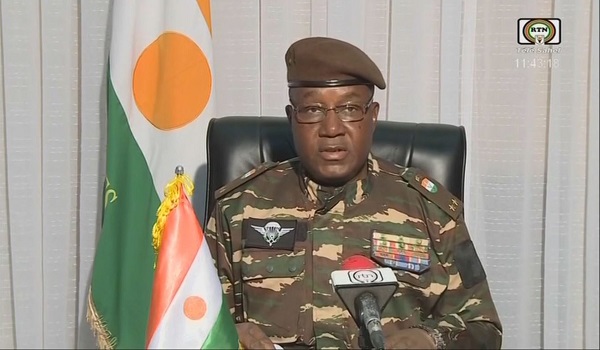The Economic Commission of West African States (ECOWAS) Authority of Heads of State and Government issued a stern ultimatum to the Niger Republic military to release and reinstate President Mohammed Bazoum as the legitimate Head of State and government within seven days. The decision came in response to the detention of President Bazoum and the declaration of General Abdourahamane Tchiani as the new leader by the Nigerien Presidential Guard.
The ECOWAS Authority recognized President Bazoum as the legitimate President and resolved to explore “all measures necessary” to restore democratic governance in Niger, including the use of force if needed. The Chiefs of Defence Staff of ECOWAS are set to meet immediately to discuss further actions.
However, the Niger putschists vehemently rejected ECOWAS’ call and warned against any military intervention, stating their firm determination to defend their homeland. They cautioned against any foreign military intervention, highlighting the potential consequences, including harm to the Nigerien population and chaos.
In response to the military coup attempt, ECOWAS imposed several sanctions on Niger, including the closure of land and air borders between member-states and Niger, a no-fly zone, suspension of all commercial flights to and from Niger, and freezing of assets of the Republic of Niger in the ECOWAS Central Bank and other financial institutions within the ECOWAS. Travel bans and asset freezes were also imposed on military officials involved in the coup attempt and civilians supporting the Tchiani-led regime.
President Bola Tinubu, Chairman of the ECOWAS Authority of Heads of State and Government, called for swift implementation of these resolutions and demanded that the coup plotters surrender and return to their barracks. He stressed the coup plotters’ responsibility for any breakdown of law and order in the country.
ECOWAS appointed a special representative of the chair of the authority to deliver its demands to Niger immediately. The decisions and recommendations made by ECOWAS and the unwavering support of the international community are crucial for building a brighter future for Niger and the entire region.
Despite ECOWAS’ call, the Nigerien military leaders rejected any military intervention, accusing ECOWAS of planning aggression against Niger in collaboration with non-member African countries and certain Western nations.
The situation remains tense as ECOWAS seeks to restore democratic governance in Niger and maintain regional stability amid resistance from the Nigerien military.









